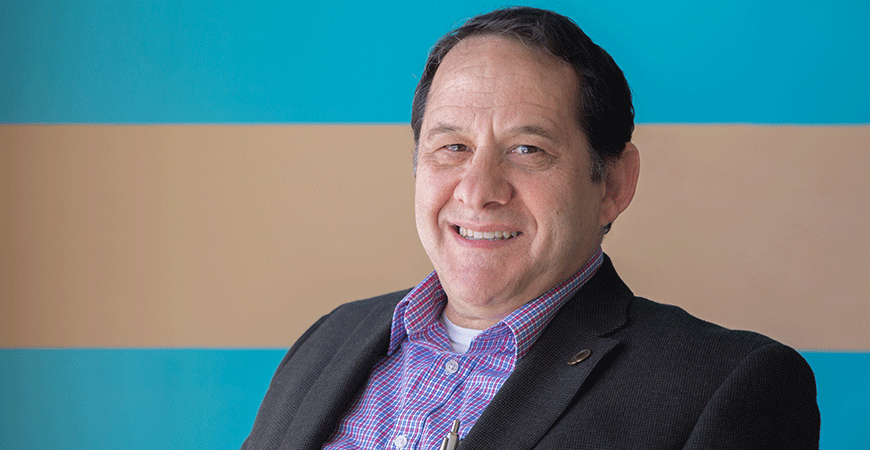
First impressions count, maybe now more than ever. But what if those impressions are based on lies?
People’s willingness to believe even the most outrageous “information” they get is so remarkable that researchers have been studying this phenomenon — more recently given the current political divide in America — and trying to explain why facts don’t sway people’s beliefs.
It’s better to learn to critically evaluate information as it comes at you, argues UC Merced Deputy University Librarian Donald Barclay, whose new book “ Fake News, Propaganda and Plain Old Lies ” is being released Friday, June 29.
“I’ve been teaching people how to evaluate information for a long time,” Barclay said. “It’s about critical thinking. We’re all guilty of being snowflakes in some way, but we have to be open to having our ideas and beliefs challenged.”
The book is not political, he said, even though political disagreements seem to dominate American conversation these days. “Fake News” is about helping people find trustworthy information in the digital age and urging people to be more critical about where they get information and how they decide whether that information is true.
In it, Barclay explains
- How to identify the alarm bells that signal untrustworthy information;
- How to tell when statistics can be trusted and when they are being used to deceive; and
- How to inoculate yourself against logical fallacies that can mislead people.
"...We need to be rational thinkers in the day-to-day world, especially for decisions that have major consequences."
We have to be most critical about information that confirms our views, Barclay said, so that we don’t fall into what’s called “confirmation bias,” or processing only information — true or false — that confirms our particular beliefs. The danger is that we will act as though these unchecked beliefs are true.
“I think we’re going through an era in which our egos are being prodded — a lot — and there’s a real personalization of the news,” Barclay said.
It’s not that propaganda is new. People have been promoting their views and agendas, sometimes in misleading ways, ever since people could communicate. Making people afraid or angry is a fairly sure way to get them to take action, Barclay explained.
What’s different now is that it’s much easier to spread voluminous amounts of bad information very quickly.
“If one social media post hits, it can touch millions of people,” Barclay said. “And it costs almost nothing to produce. But we need to be rational thinkers in the day-to-day world, especially for decisions that have major consequences.”
Opinion should be based on real information, and not on questionable “evidence.”
“If someone’s going to believe the moon landings were faked, it’s going to be hard to change their minds,” Barclay said. “But we really do owe it to ourselves and others to get the best information we can before we share it.”
“Fake News” is being published by Rowman & Littlefield, and it’s Barclay’s ninth book. Others include topics from helping other libraries serve online customers and teaching and marketing electronic information literacy to explorations of narratives about the Old West and mountain men.
But this is the first one of Barclay’s books to be marketed to general audiences.
“We feel Donald’s book is extremely necessary today because it will help people cope with this age of social media and 24-hour news cycles,” said Charles Harmon, the executive acquisitions editor for Library and Information Science, Archival Studies, and Museum Studies at Rowman & Littlefield. “When fake news influences people’s reactions and presidential elections, it’s crucial that everyone in an informed democracy be able to distinguish true news from fake news.”
Lorena Anderson

Senior Writer and Public Information Representative
Office: (209) 228-4406
Mobile: (209) 201-6255






